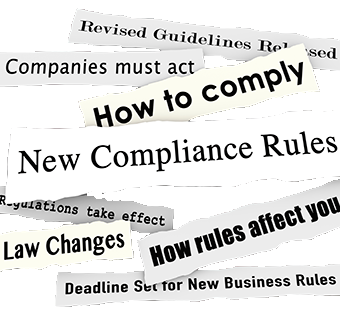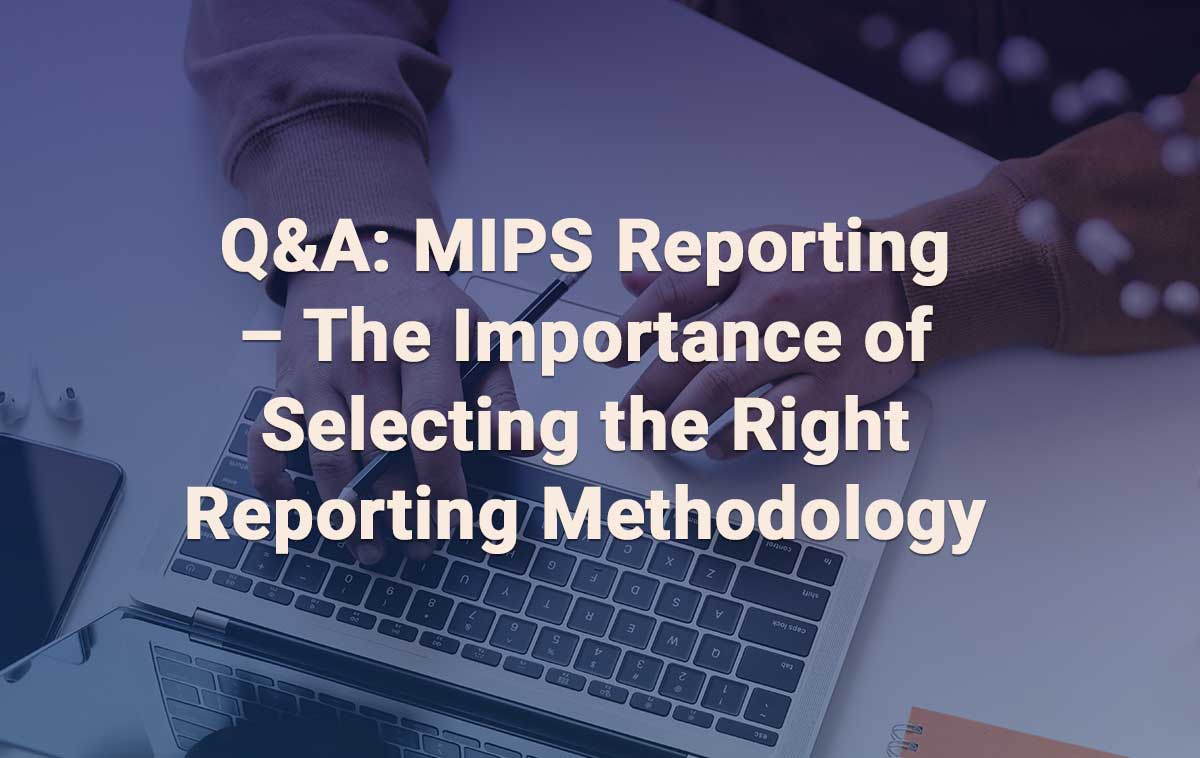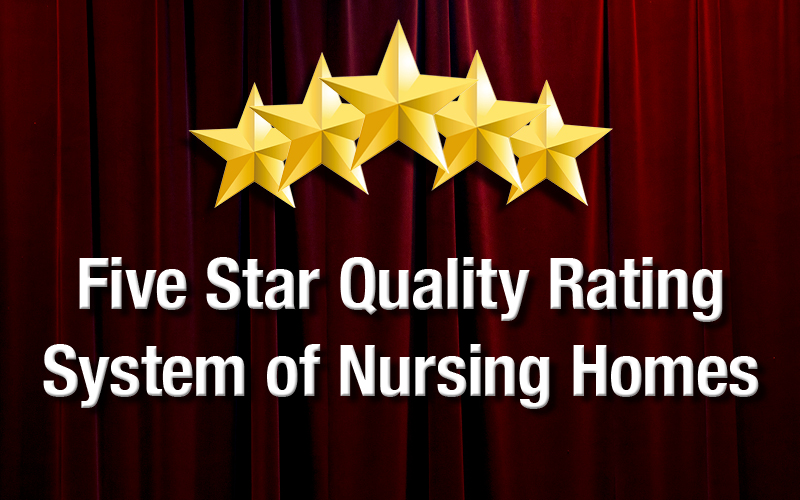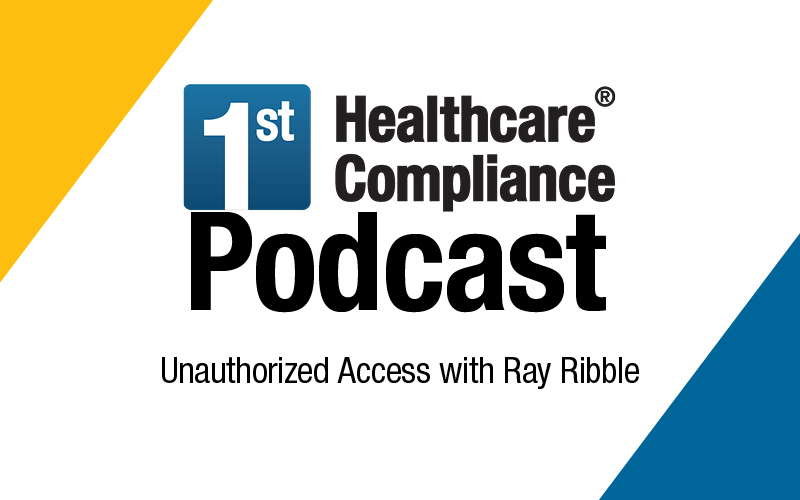DMEPOS – In Compliance with CMS
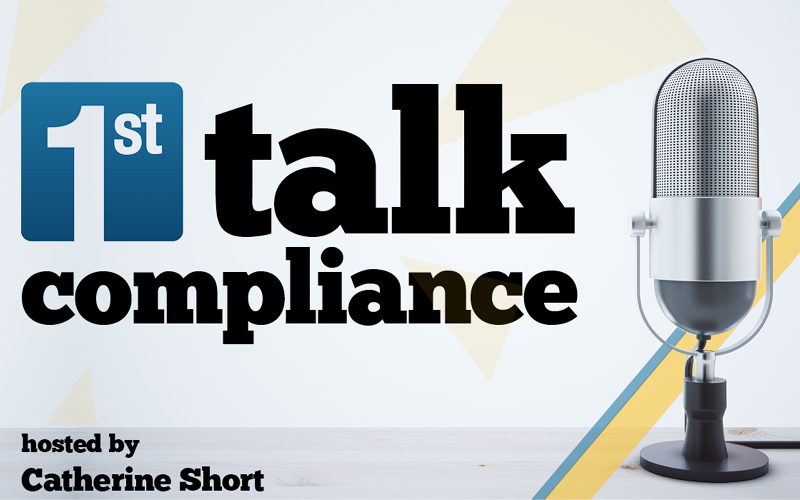
1st Talk Compliance features guest Rachel V. Rose, JD, MBA, principal with Rachel V. Rose – Attorney at Law, P.L.L.C., on the topic of DMEPOS – In Compliance with CMS. Rachel joins our host Catherine Short to discuss special payment rules associated with durable medical equipment, prosthetics, orthotics and supplies. DMEPOS products must meet quality standards, suppliers need to be accepted by Medicare to participate, similar to providers, and are subject to fraud, waste, and abuse laws. This episode will provide an overview of participation and quality requirements, relay the latest compliance and requirements updates, and discuss the consequences of non-compliance, as well as submitting false and fraudulent claims.
Subscribe: Apple Podcasts | Spotify | Amazon Music | Android | Email | RSS | More
Catherine Short:
Welcome, and let’s, 1st Talk Compliance. I’m Catherine Short, Marketing Manager for First Healthcare Compliance, a division of Panacea Healthcare Solutions. Thanks for tuning in. This show is brought to you by First Healthcare Compliance as part of our commitment to provide high quality complimentary educational resources. Please show your support by taking a moment to provide a review on Google, Facebook, or iTunes, and be sure to follow us on social media and subscribe to our YouTube channel.
On today’s episode, we are speaking with Rachel V Rose, JD, MBA, principal with Rachel V. Rose Attorney at Law P.L.L.C., Houston, Texas on the topic of DMEPOS – In Compliance with CMS. There are special payment rules associated with durable medical equipment, prosthetics, orthotics, and supplies. DMEPOS products must meet quality standards suppliers need to be accepted by Medicare to participate similar to providers and are subject to fraud, waste, and abuse laws. This episode will provide an overview of participation and quality requirements, relay the latest compliance and requirements updates and discuss the consequences of non compliance as well as submitting false and fraudulent claims.
Before we begin, I would like to mention at First Healthcare Compliance we strive to serve as a trusted resource for compliance professionals and we celebrate their dedication with our compliance Super Ninja recognition. For this episode, we’re spotlighting Super Ninja, April Collins, Compliance Officer for Anesthesiology and Pain Management Consultants. April says “What I enjoy the most about working at Anesthesiology and Pain Management are definitely the patients. I very much enjoy helping people and find it very rewarding.” Congratulations, April, our team is honored to have the privilege of working with you.
So thank you, Rachel, for joining me on 1st Talk Compliance. It’s such a pleasure to have you on!
Rachel V Rose
Catherine thank you. It’s always my pleasure to be here with you and to engage in a meaningful and interesting dialogue on a variety of different topics.
Catherine Short
Well, thank you. Okay, so as we get started, can you first for our listeners here on 1st Talk Compliance, give us a definition of DMEPOS? what that is exactly?
Rachel V Rose
Sure. I think fundamentally, it is a type of equipment that is utilized by a person and the setting can vary. Typically when you think of Medicare Part B that would be utilized by a Medicare beneficiary in their home and Medicare Part A would be when a Medicare beneficiary utilizes a piece of DME and again, DME can range from anything from a wheelchair to a hospital bed, to a knee brace after a total knee replacement, or an ACL reconstruction, to more disposable items that a person who was diabetic or hypoglycemic or is on a certain medication might use that are disposable. And if we think about the diabetic testing strips, the glucometer, the lancets that are used to pick prick a person’s finger. Obviously, the glucometer is something that should last for at least three years unless it’s defective for some reason. So that’s not something that’s going to be replaced regularly. However, the lancets and the testing strips are single use. That’s something that is disposable and can be discarded. Those are the range and types of items that would be considered a durable medical equipment and the types of settings in which they could be utilized whether it is a skilled nursing facility, or an acute care hospital, which would be billed in a different manner than if someone is, as an example diabetic and utilizing the glucometer, lancets, and testing strips on a regular basis. It’s important that a person appreciate the difference between a long-term care facility which in fact could be a person’s home and Medicare Part B would apply or a skilled nursing facility and while a person is in a sniff, as they’re called, for that 100 day period or shorter depending on what they happen to be there for. It could in fact be a Medicare Part A submission instead.
Catherine Short
Could it include oxygen tanks, or medical foods or nutrition or things like that? Or in this case, are we only talking about just equipment type of things? I didn’t know if you would be able to clarify that, or is there some kind of difference?
Rachel V Rose
Sure. So going back to just DMEPOS that actually stands for Medicare, durable medical equipment, prosthetics, orthotics, and supplies, and you really brought up different rungs of items, if you’re looking at certain prescribed nutrition items that actually might fall under a pharmaceutical which is separate from DMEPOS. And it is separate for a lot of different reasons. One would have to make sure as to what category a particular item fell into, whether it falls under pharmaceutical drugs type item, or if it falls under a DMEPOS. Specific to oxygen and oxygen equipment. there’s actually a fee schedule related with that, and the Consolidated Appropriations Act of 2021, which is found at Public Law 116 -260 and was signed into law on December 27, of 2020 and effective April 1, of 2021, actually eliminated the budget neutrality requirements set forth in a provision of the Social Security Act for separate classes and national limited monthly payment rates established for any item of oxygen and oxygen equipment. Now, no doubt the pandemic had an impact on that because as anyone is mostly aware, a lot of the issues associated with COVID were respiratory in nature.
Catherine Short
Right! Actually, can we discuss that? How is COVID-19 impacting the supply or procurement of DMEPOS?
Rachel V Rose
In terms of the claim submission process, a standard written order from the provider is still required, and I’m using the outpatient setting and not in-patient. With a standard written order, you have to establish medical necessity. If a person has COVID, and they have the residual tests that substantiate the respiratory issues associated with it, meeting medical necessity should not be an issue. Making sure that the requirements for the claims on both the provider side and the supplier side are being met, those really have maintained consistency throughout the pandemic, so to speak. When you start talking about the supply chain side of the equation, as we saw from the outset, even with things such as gloves, and masks and gowns, there has been an impact on the supply chain side across and it just depends on where a person is and what the issues are at any given time. The last part of that which is important, and which may be again, given consideration in light of the requirements of a particular code, or what’s usual and I mentioned the lancets for diabetics, testing strips, different people with diabetes may be required or have a need to test themselves more than before each meal. The reason could be if they’re engaging in an athletic type of activity, or they feel a little wonky because they could have come down with a certain medical condition or a virus or something like that. You could see an increase in their use of lancets and testing strips. It doesn’t mean they’re acting outside of an abnormal use for their particular individual situation, but it is imperative that a medical provider document that and then that is translated to the supplier.
With oxygen and oxygen equipment, as you can imagine, there are CPAP machines or BiPAP machines in addition to, I believe what you articulated earlier with the rolly oxygen tank, right? Where a person has a tube that typically goes into their nose, right and has two nostril plugs. There might be a reason that Medicare typically approves, and I don’t know the number, so I’m just giving a number five of those tubes a month, I don’t know. Because of COVID and other factors that an individual may have to deal with, the provider will say, well, I want this changed more often because bacteria could right form in there and I don’t want that to be reinfecting the patient. He or she may request 10, 20, 30 and as long as that meets medical necessity, and then it’s brought to the attention of the MAC so a potential waiver could be gotten and approved, then there should not be an issue. It’s when it’s just a carte blanche, I’m just going to ship items without either an SWO (standard written order) or other requirements in documentation in place.
Catherine Short
If you’re just tuning in, you’re listening to 1st Talk Compliance brought to you by First Healthcare Compliance as part of our commitment to provide high quality complimentary educational resources. We help create confidence among compliance professionals throughout the United States. My guest today is Rachel V Rose, JD, MBA, principal with Rachel V. Rose Attorney at Law P.L.L.C. on the topic of DMEPOS – In Compliance with CMS. Please show your support by taking a few minutes to provide a review of First Healthcare Compliance on Google or Facebook. You can also follow us and subscribe on all forms of social media.
I want to just shift ideas for a second. Anytime there’s stuff that can be bought or sold, there’s an opportunity for fraud. Could you speak to how DMEPOS, what the effects are of fraud or where and how fraud has occurred? And then since fraud is, I’m sure occurring in some places, what are the hottest areas in the US for DME fraud?
Rachel V Rose
So, I’ll take that in bite size type of process here. First, I’m going to go with the inverse and answer your last question first. What areas are hot for DME fraud? Well, if you look at the Z pick zones and the heat zones that HHS has identified, historically, that has included Texas and Florida, for whatever reason, and so a lot of DME fraud, which really isn’t surprising in Florida because it is a hotspot for retirees and therefore, a lot of Medicare beneficiaries live there. Those are two hotspots.
Other items. If you look at some recent actions that the Center for Program Integrity and the Center for Medicare services have taken in conjunction with the FBI and HHS OIG, which were prosecuted by the US Department of Justice that included 17 federal districts, the execution of over 80 search warrants, which resulted in 24 defendants being charged. These included CEOs, COOs, others associated with five telemedicine companies and owners of dozens of DME companies, as well as three licensed medical professionals who participated in a healthcare fraud scheme, involving more than 1.2 billion in losses overall, in relation to $1.7 billion in claims that were submitted. There were 130 DME companies that were investigated. This was a very significant reach.
But if you think about the historical areas where a lot of fraud has been perpetrated in relation to DME, and other types of health care fraud, Florida’s in specific and specifically the Southern District of Florida, as well as Texas, and if you look in particular at the Northern District of Texas and the Southern District of Texas, there is a lot of healthcare fraud. That’s a criminal side and that’s the reach.
If you look at the civil side, that is something that DOJ civil Law Enforcement Division has made a priority because oftentimes illegal inducements which take the form of free items and the routine waiver of co pays, which can result in over utilization and waste for taxpayer funds. Those can be brought in any jurisdiction in the country. A very significant case just came out of the Middle District of Tennessee. Now the Middle District of Tennessee is very interesting because it includes Nashville. And for those of you who know my bio, I am a Vanderbilt grad, so Nashville is near and dear to me. But also, one of the reasons I attended Vanderbilt is that Nashville is known as the Silicon Valley of healthcare. And so it’s not surprising that not only do we have some of the largest health systems located in Nashville, we also have a lot of ancillary businesses, including DMEs, which are located there as well. At one point, Arriva Medical Center was the nation’s largest Medicare mail order diabetic testing supplier, and its parent Alere ended up over shipping and providing free and no cost glucometers and routinely waiving or not collecting copayments for meters and the diabetic testing supplies which include those lancets and the testing strips that I mentioned. Basically, that type of fraud and submission occurred from April 2010 until the end of 2016. It cost that company over $160 million to resolve those allegations. For those who are interested in the citation, this case was brought under the False Claims Act, and it is captioned at United States ex rel Goodman versus Arriva Medical LLC et al., Case number 3:13-cv- 00760 and it is out of the Middle District of Tennessee.
Catherine Short
Are there a certain percentage of people who are accidentally caught up in fraud, doing something incorrectly? And just over and over doing something incorrectly? I mean, how often does that happen?
Rachel V Rose
So I think you raise an excellent point because as the sister webinar to this illustrated, it’s imperative in terms of compliance that you really train your staff, you make sure that they’re up to date on the correct codes, and you have an outside third party auditor come in at least once a year to make sure that a statistical sampling is done to ensure that the claims that are being submitted are being coded correctly, and that they’re meeting the regulatory requirements as well as the national coverage determination and local coverage determinations which are set forth by the max to ensure that people aren’t doing it to your point on a regular basis. And that’s really part of adopting a valid compliance program and cultivating a culture of compliance. There is a thin line at a certain point between what constitutes negligence and what constitutes reckless disregard for truth or falsity of the information and that’s where having the ongoing training and everything else can be absolutely critical to the success and viability of an organization avoiding and mitigating the risk of an enforcement action, whether it is through an administrative agency such as HHS and OIG, or through a whistleblower case under the False Claims Act.
Catherine Short
Can DMEPOS suppliers be excluded from Medicare? Is that a possibility?
Rachel V Rose
Absolutely. And because they are a participating provider, they are just as susceptible as any other individual or entity from being excluded by Medicare or alternatively having to enter into a Corporate Integrity Agreement.
Catherine Short
Okay, and what type of items should auditors consider?
Rachel V Rose
A type of item that an auditor should consider, one item is making sure that that SWO (standard written order) is in place.
Secondly, making sure that it’s updated annually.
Third, making sure that the medical record documents the medical necessity from the provider side, and then from the supplier side, making sure that that SWO is on file, that they have all of the appropriate signatures, that they’re not stamped, and that they’re meeting both the national coverage determinations and local coverage determinations, in addition to the regulatory and Medicare manual requirements.
Finally, on the DME side, the number of items and the waiver of co pays should also be looked into.
Catherine Short
Okay, I think I just had one last question. If you could just expand on how a either hospital administrative team or even a practice administrator in an office could cultivate a culture of compliance.
Rachel V Rose
Okay, so cultivating a culture of compliance is a phrase that is set forth by the government. Cultivating a culture of compliance is really realistic, and just like HIPAA, and the Final Omnibus Rule which is at 78 Federal Register 5566, and it was published on January 25, of 2013 states, you can’t get a certificate right for being HIPAA compliant. The government says they don’t accept that. You can get training certificates, you can indicate that you strive to cultivate a culture of compliance, but the minute someone posts something or sends a bill out to the wrong person, you’re no longer compliant with HIPAA.
Cultivating a culture of compliance means having the requisite items that are required to meet compliance measures to ensure that you’re acting in accordance with the relevant laws and regulations. A key component to doing that, whether it’s HIPAA, or you’re looking at claim submissions, is to make sure that a) you have adequate policies and procedures, b) to make sure that your staff and providers are trained on what is accurate and truthful and what needs to be substantiated in the medical record and also what needs to be sent to the supplier. And then on the supplier side, what they need to keep and what they need to provide in the event of an audit by either a recovery audit contractors Z pick contractor or a MAC contractor with the government. All of that is absolutely critical to document.
And then ensuring that you have the third party person come in and articulate to people where mistakes have been made, if there’s a requirement to pay the government for back overpayments that you weren’t aware of, and the risk that comes along with that.
Cultivating a culture of compliance again, it needs to be done in substance over the form and I always like to use the Tommy Boy movie example, I can crap in a box and stamp it guaranteed, then I’d have a guaranteed piece of crap. You don’t want the guaranteed piece of crap, you want something that guarantees a product or in this case, a compliance program that is absolutely substantive and in good faith when the government comes in or a lawsuit, God forbid, ensues, that you as an organization, or a hospital executive team or an individual providers team or a DME company can say, you know what, we didn’t just give this lip service, this is what we do in order to make sure that we’re adhering to all the regulations. And even if some items got through, it can be a very significant mitigating factor in terms of the amount of the penalty or the Corporate Integrity Agreement being assessed or not being assessed. It is a very dynamic area and a very dynamic time and I think the more proactive organizations could be as we’re transitioning out of COVID and getting out of this treading water period to really moving forward, personally and professionally, I think that’s going to become more and more of a focus for the government.
Catherine Short
Okay, thank you, Rachel, for this comprehensive presentation. And we haven’t had a presentation like this from this perspective. I very much appreciate you sharing your expert advice with us. Thank you for being on. Do you have any other words of advice that you’d like to leave with us concerning our presentation today about durable medical equipment?
Rachel V Rose
The only items that I would reemphasize are, when an entity implements a compliance program and tries to cultivate a culture of compliance, make sure that it is robust, that it’s reviewed at least annually, and that training is included with that. Because when the government comes in, and if you’re on the receiving end as a defendant in a False Claims Act case or a love letter from HHS OIG, you can potentially have a mitigating factor by having valid and robust compliance program. But again, it has to be genuine and they do look at the substance over the form of those types of programs.
Catherine Short
Okay, well, thank you so much for being on 1st Talk Compliance today.
Rachel V Rose
And thank you, Catherine.
Catherine Short
And thanks to our audience for tuning in to 1st Talk Compliance. You can learn more about the show on the program’s page on healthcarenowradio.com and lend your voice to the conversation on Twitter @1sthcc or #1stTalkCompliance. You can also email me at catherineshort@1sthcc.com. I’m Catherine Short of First Healthcare Compliance. Remember, compliance is the key to achieving peace of mind.

